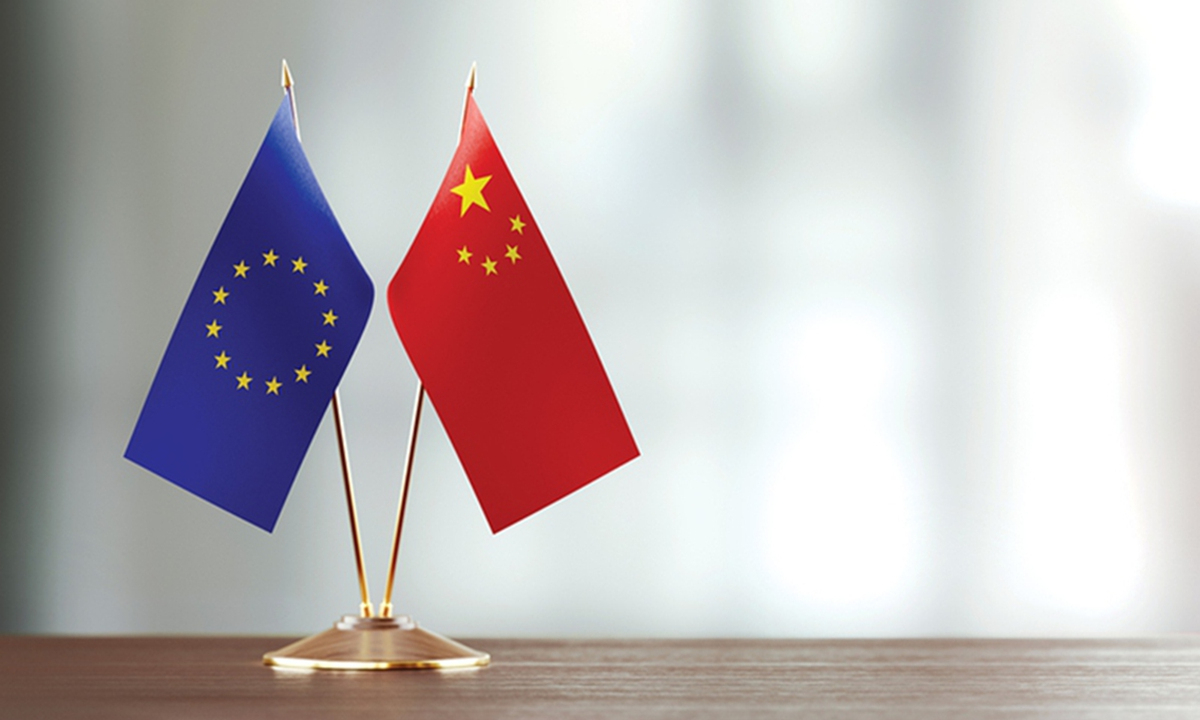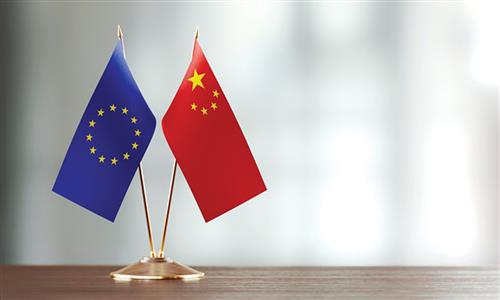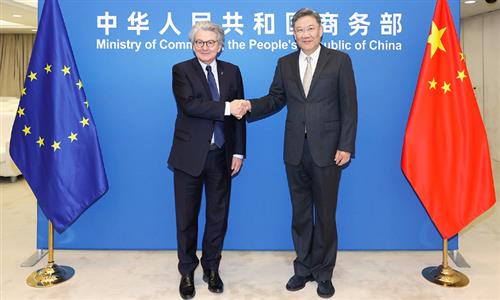Over 80% Chinese firms surveyed plans to expand business in Europe despite EU ‘de-risking’ push: report

China EU Photo: VCG
The report, jointly released by the CCCEU and Roland Berger, surveyed and interviewed 180 Chinese enterprises in the EU, putting forward 170 suggestions in nine major aspects to facilitate China and the EU to seek common ground while shelving differences and engage in mutually beneficial cooperation for a shared future.
According to the report, Chinese enterprises in the EU generally have sound and stable operations in the single market. Nearly 90 percent respondent enterprises report revenue growth in 2022, higher than the 80 percent of the year before. About 58 percent of them expect their revenue to grow in 2023, higher than last year’s 40 percent.
However, the EU’s “de-risking” strategy and overstretched concept of security have translated to market access restrictions and trade barriers. The anti-subsidy investigation that the EU launched against Chinese electric vehicles has dampened Chinese enterprises’ confidence.
A total of 76 percent of the respondent enterprises reported that their business operations have been negatively impacted by the EU’s “de-risking” strategy. Chinese enterprises hope that the EU should respect the division of labor along the global industrial chain and foster an open and fair market environment where Chinese enterprises are granted equal access.
Despite all these challenges, 83 percent of respondent enterprises confirm that they still have faith in the EU market and will continue to expand their presence.
The report noted that global economic stability calls for sound China-EU economic and trade ties and requires the two partners to boost trust and join hands for common development.
In 2022, China and the EU saw their bilateral trade reach EUR 857 billion, making them the second largest trading partner for each other. While manufactured goods still dominate bilateral trade, shares of green products have registered rapid growth and high-tech products trade dramatic increase has showed growing interdependence between the two sides.
Green transition and development is a consensus between China and the EU. The two partners enjoy significant potential for cooperation in climate governance, emission reduction and clean energy.
Though the EU seeks to reduce external reliance in the green sector and Chinese enterprises feel that the EU has put up trade barriers in areas where Chinese players have a competitive edge, these enterprises in the EU are optimistic about the bilateral green cooperation.
According to the survey, 76 percent Chinese enterprises believe that the China-EU partnership in advancing green economy will continue to improve in the coming five years. 90 percent of them report that green economy will bring more opportunities than challenges or a mixture of both.
Having similar digital goals and highly complementary advantages, China and the EU are well positioned to carry out in-depth cooperation in digital economy, according to the report. However, Chinese enterprises reflect that the EU has exerted considerable pressure on them in the digital market as it seeks to “de-risk” from China in pursuit of digital transition, generalizes the concept of security, and directly or indirectly excludes Chinese suppliers from participating in telecoms and semiconductor market.
Chinese enterprises in the EU believe that restricting companies from China will hinder the development of the EU’s own digital economy and will be unfavourable for the establishment of unified global standards. They call for removal of discriminatory policy and market barriers put up on the ground of cybersecurity, as well as trade and R&D collaboration restrictions in the high-tech area, in order to jointly press ahead with mutually beneficial cooperation by leveraging their complementary strength, and most importantly, develop China-EU digital partnership based on mutual trust and common interests.
In addition, China and the EU share broad prospects for cooperation in sustainable development and sci-tech innovation, read the report.
Global Times


